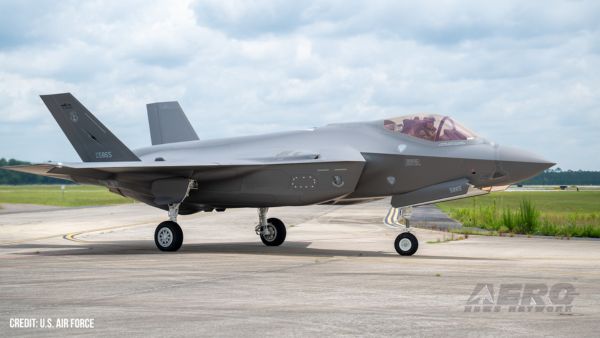Wed, May 25, 2011
Over 500 Scientists From 16 Countries Developed The Device
Four days after launching aboard space shuttle Endeavour, the
Alpha Magnetic Spectrometer (AMS-02) has been successfully
installed on the International Space Station (ISS). The AMS-02 is a
state-of-the-art particle physics detector designed to operate as
an external module on the International Space Station. It will use
the unique environment of space to study the universe and its
origin by searching for antimatter and dark matter
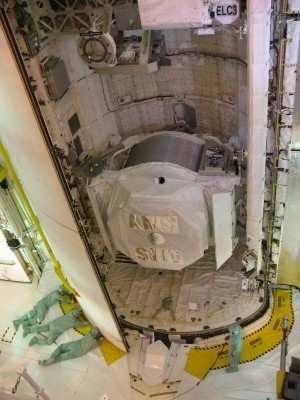
The AMS-02 contains sensors that measure cosmic radiation and
detect dark matter or antimatter. The sensors should function well
for at least ten years and are maintained at a fixed temperature.
To ensure equitable temperature conditions, a highly advanced
cooling system was developed based on two-stage CO2 cooling. The
instrument, which was developed by a team of some 500 scientists
hailing from 56 scientific institutes in 16 countries, was
transported to ISS aboard space shuttle Endeavour in its final
flight.
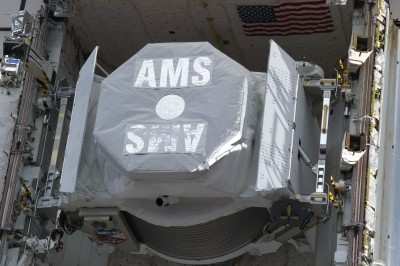
The Alpha Magnetic Spectrometer - 02 (AMS-02) is a
state-of-the-art particle physics detector constructed, tested and
operated by an international team. The AMS-02 uses the unique
environment of space to advance knowledge of the universe and lead
to the understanding of the universe's origin by searching for
antimatter, dark matter and measuring cosmic rays.
NASA says the AMS-02 will provide a plethora of cosmic ray data
that will help to advance and perhaps redefine much of what we know
about the Low Earth Orbit space radiation environment.
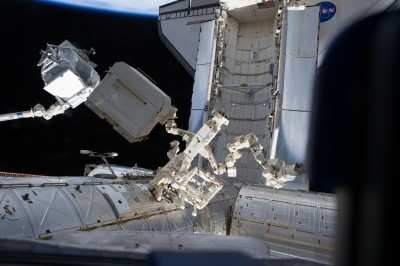
This unique scientific mission of exploration seeks to
understand fundamental issues shared by physics, astrophysics and
cosmology on the origin and structure of the universe. Although the
AMS-02 is specifically looking for antimatter and dark matter, as
the largest magnetic spectrometer in space, AMS-02 has and will
collect information from cosmic sources emanating from stars and
galaxies millions of light years beyond the Milky Way.
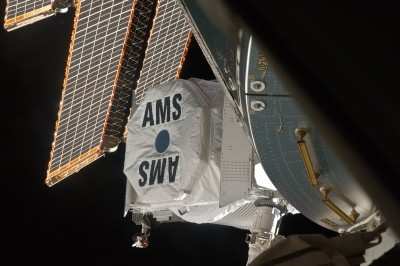
The instrument is reportedly operating normally, and has
reportedly already tracked its first particles from ISS.
More News
Aero Linx: The American Society of Aerospace Medicine Specialists (ASAMS) The Society is a non-profit organization created to serve as a voice for and represent the professional ne>[...]
Class C Service This service provides, in addition to basic radar service, approved separation between IFR and VFR aircraft, and sequencing of VFR aircraft, and sequencing of VFR a>[...]
Have A Story That NEEDS To Be Featured On Aero-News? Here’s How To Submit A Story To Our Team Some of the greatest new stories ANN has ever covered have been submitted by our>[...]
Also: ERAU Uses UAVs, P550 Group 2 UAS, Starship’s Florida Launches, NASA Missions Chopped The Air Force has put out a call to commission a one-to-one copy of the Iranian-des>[...]
Classic Klyde Morris From 11.07.16 (and Remembering Bob...) FMI: www.klydemorris.com>[...]
 ANN's Daily Aero-Linx (08.27.25)
ANN's Daily Aero-Linx (08.27.25) ANN's Daily Aero-Term (08.27.25): Class C Service
ANN's Daily Aero-Term (08.27.25): Class C Service ANN FAQ: Submit a News Story!
ANN FAQ: Submit a News Story! Airborne-NextGen 08.26.25: Iran UAV Knockoffs, X-37B Spaceplane, Army Training
Airborne-NextGen 08.26.25: Iran UAV Knockoffs, X-37B Spaceplane, Army Training Classic Klyde Morris (08.25.25)
Classic Klyde Morris (08.25.25)






